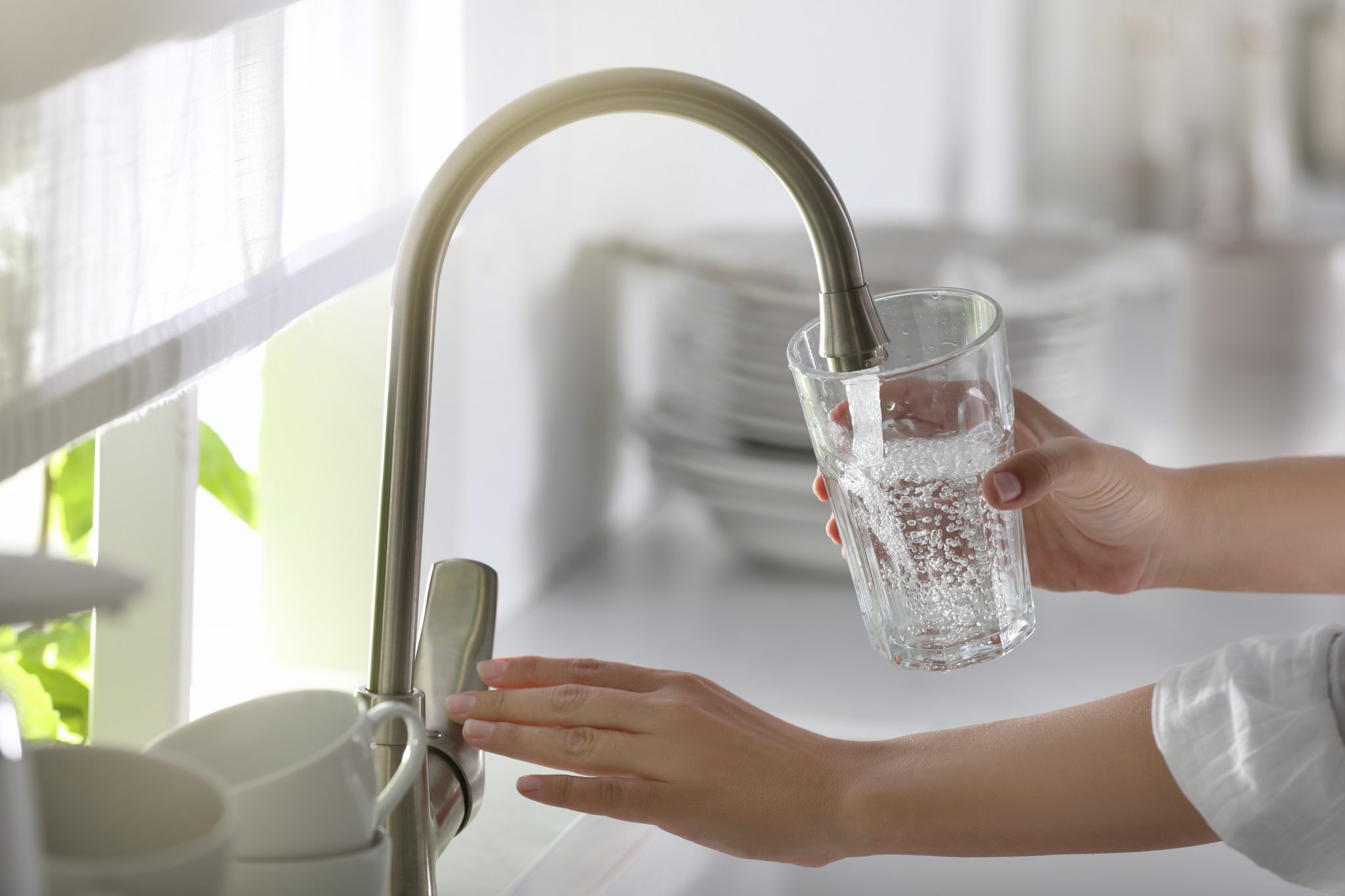Counties Statewide

The average American consumes 1 to 2 liters of drinking water per day, making water quality a top priority for human health and safety. Although a well may not appear to have any issues, well water quality can change over time because of natural or human-induced contaminants. Private well water quality is not federally or state regulated, so it is crucial for private well owners to test their water regularly to ensure that their drinking water is safe.
Well water testing is not a regulated public service offered by municipalities in the same sense as public water systems. If people want their water tested, it is their responsibility to reach out to the health department or private testing lab to obtain a sampling kit. Private well owners should check their water quality regularly for bacterial contamination. Even if a well appears clean and has no irregular smells, invisible microorganisms can still be present and pose major health risks to those using the water. In addition to ensuring that the water is safe for drinking, a regular testing schedule helps establish a water quality record for a well.
When to Test a Well
The Centers for Disease Control and Prevention (CDC) recommends that well owners check for mechanical issues each spring and perform a water quality test at least once a year. Establish a well water testing schedule that the household can follow. This will make it easier to remember to perform an annual checkup when the time comes. Owners should also test well water quality under the following circumstances:
- The owner is expecting a baby in the home.
- The well has recently been affected by a flood.
- For more information about stormwater and how it can impact a well, read Flooded Wells: Shock Chlorination at www.aces.edu.
- A chemical spill occurs within 500 feet of the well.
- A person is purchasing a house with a well.
- Neighbors have recently found contaminants in their groundwater.
- The well is old or shallow.
- The well does not meet construction codes.
- The household has recently suffered gastrointestinal illness.
- A nearby development is using hazardous materials.
- The plumbing system shows signs of deterioration.
- The owner notices a change in the water’s taste, appearance, or smell.
- A well water test has not been performed in over a year.
Laboratories
Certified drinking water testing labs. The Alabama Department of Environmental Management (ADEM) has a comprehensive list available of all certified laboratories in the state. This means that a lab has passed an inspection and all criteria set by the regulating agency. In Alabama, ADEM certifies labs to test drinking water, and public water systems must use these labs or labs certified by the United States Environmental Protection Agency (EPA) for nearly all of their monitoring.
The Alabama Department of Public Health. A simple way to get a well water sample analyzed for bacterial contamination (fecal coliforms, total coliforms) is to contact the county health department.
Noncertified private labs. Noncertified labs may be better utilized as an educational resource to conduct a basic screening of the water quality of the well. The Auburn University Soil, Forage, and Water Testing Laboratory is an educational lab that may perform a basic water quality analysis of well water. If any results come back of concern, additional testing can be done by a certified private lab.
Types of Well Water Tests
- Bacteriological test. Can confirm the presence of bacteria like total coliform bacteria, fecal coliforms, and E. coli.
- Mineral test. Includes testing for minerals like calcium, magnesium, manganese, iron, copper, and zinc.
- Organic chemical test. Includes testing for contaminants that may result from pesticide application or industrial/petroleum contamination.
Other tests may be conducted to determine if radiological contaminants are in a well.
Contaminants
Drinking water can be analyzed for a variety of contaminants, depending on the lab. For example, tests conducted by the Alabama Department of Public Health may only offer standard bacteriological tests, while certified labs may offer more extensive chemical analyses.
Private well water should be screened for a variety of contaminants, some being nitrate, iron, fecal coliform bacteria, total dissolved solids, and sulfate. It is also important to assess pH, alkalinity, and hardness in drinking water. If there is a specific contaminant of concern in the well area–such as radon, arsenic, or volatile organic compounds (VOCs)–owners should seek appropriate testing.
Minerals like arsenic and uranium can naturally occur and contaminate a well. In Alabama, uranium is found naturally in soils and rocks and produces radon when broken down. Contaminants can also enter a well through stormwater runoff if it is not properly sealed, which can carry harmful substances into the drinking water. Be aware of the land use activities occurring around a well. Specific land uses like agricultural operations or septic tank fields may need to be monitored for specific contaminants attributed to these uses.
The following is the general timeline for when well owners should test for certain contaminants:
Test Annually
- Total Coliform
- Fecal Coliform
- E. coli
- Nitrate
- Total Dissolved Solids
- pH
Test Every Two to Three Years
- Chloride
- Fluoride
- Sulfate
- Lead
- Hardness (as CaCO3)
- Calcium
- Copper
- Iron
- Manganese
This is just an assortment of the tests recommended for well water quality. It is at the well owners discretion to seek extensive testing regarding their well’s health. For any questions about private well water testing, owners can contact their county’s Extension office.
How to Test Well Water
The full process for testing well water with the Alabama Department of Public Health is found in How to Take a Well Water Sample on the Alabama Extension website. Well owners have a few options when it comes to selecting a lab to run the analysis on a water sample. Read Where to Get Your Well Water Tested on the Extension website to see what well water testing labs are in your county. Each lab may have specific sampling and shipping instructions, so always call to confirm with the lab prior to collecting a sample.
After Testing
Once the results are received, be sure to keep track of them. Designate a folder for all of the well-related paperwork, including maintenance reports and testing schedules. If people have questions or concerns about their water quality analysis report, they should contact the lab that performed the test. If the well shows results above the contaminant levels recommended by the EPA for drinking water, consider the following:
- Use bottled water until the well has been treated.
- Locate and eliminate the source of contamination.
- Have a certified well driller install a new water well.
- Connect to the municipal water supply.
- Evaluate and install a new water treatment system.
If a well requires treatment, see Treatment Options for Water Well Owners to learn more about possible treatment options for private wells.
More Information
For more information about private water wells, visit the Private Well Program section of www.aces.edu.


